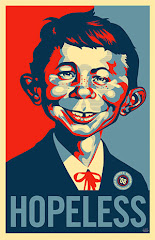Out Stealing Horses by Per Petterson is a strange novel on several levels. The first chapter starts out in a deliberate staccato style, but afterward the narrative is less constrained due to the impressionistic nature of the writing.
The novel is a first person narrative told from the point of view of Trond Sander, a 67-year-old Norwegian whose wife died in a car accident and a month later lost his sister to cancer. After living his adult life in the city, he retreats to the country, living secretly in seclusion, without a television and telephone, and alienated from his daughters and society. One night, he notices his neighbor, Lars, is looking for his dog and this chance encounter is the catalyst to Trond’s recollection of past relationships with his father, his best friend Jon and his mother, the neighbor Franz and living in Norway immediately after WWII. It appears Trond becomes annoyed with Lars because he feels the latter is interfering with his solitude.
Another strange aspect of the novel is Trond’s friendship with Jon. One day, they are out together on an adjacent farm riding horses. Afterwards, they climb a tree and Trond is fascinated by a bird’s nest, but Jon crushes the egg and destroys the nest. This sudden act of cruelty hurts and ends their friendship. Jon becomes distant and eventually, at least physically, disappears from the novel. He leaves home and becomes a sailor after a childhood tragedy. He left a loaded weapon within reach of his younger twin brothers and Lars accidentally kills Odd.
In an odd coincidence, his neighbor, Lars is Jon’s brother and Odd’s accidental killer.
Trond’s sexuality is emerging and he is infatuated with Jon’s mother. The situation becomes more complicated when Trond realizes his father is a rival for her affections and vice versa. In one scene, his father says, “What about someone your own age?” And as much affection Trond has for this woman, he never identifies her by name, only as Jon’s mother.
Trond’s father maintains a presence throughout the novel, but he the protagonist last saw him in 1948. His father was a courier/spy during the Nazi occupation of Norway. The war must have wounded him in a way that he could no longer live with his family and one day he left. Later on, he wrote his family a letter thanking them for wonderful memories; he was not coming back, left some money in a bank in Sweden and sent his “best wishes.”
In a sense, Trond is his father’s son. He also abandons his family. Ellen, his daughter, is forced to track him down because he left without saying goodbye, or even leaving a forwarding address.
There is a coldness that permeates throughout the novel, when Jon crushes the fragile egg I get a sense of how Trond feels, but not about Jon’s feelings and motivations because he never explained his actions. At first, I thought I was peeking into the mind of a budding sociopath and was disappointed when Jon disappeared. At least, I expected a conversation in which Trond scolded Jon for his behavior.
Furthermore, there was no sexual tension in the scenes with Jon’s mother. Trond did not appear to understand his feelings toward her. He describes what she is wearing, but not how she looks. I did not get an understanding into his attraction for her. In terms of teenage sexuality, he must have been a late bloomer because at that I age I was fully aware why I lusted after girls.
Another interesting aspect of the novel is the virtual absence of dialogue. The narrative is descriptive, there is a strong sense of time and place, especially when the protagonist is describing nature, but Trond is not simply describing sights and sounds; he’s also describing scent. For example, he just cut down a tree and is describing the scent of the fallen tree and he is transported back in time to a childhood memory. The author uses scent as an effective tool to triggers memories, and this is an efficient method of transitioning from the protagonist’s present to his past with the novel shifting seamlessly from present to past.
The most striking feature of the novel is how the author is able to describe the ordinary minutia of Trond’s life without it becoming ponderous, how he’s getting the chainsaw ready, cutting trees, collecting hay. The author’s successful because of the vivid descriptions. There is a strong sense of place.
There is a great line in the novel, “the past is a foreign country, that they do things differently there…” It symbolizes the spirit of the novel. An outsider would not understand Trond’s past because it was foreign to the outsider. You had to be there to understand how it shaped Trond’s present and maybe that is why I found Out Stealing Horses a little strange. I had to be there to understand.
Tell Me Who You Walk With
9 years ago









